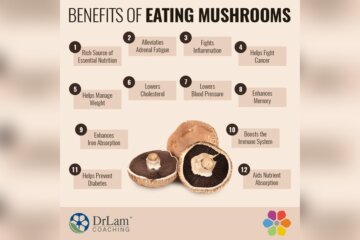What Is the Difference: Supplements and Nutraceuticals? Supplements are products designed to add nutritional value to the diet. Nutraceuticals provide both nutritional and therapeutic benefits.
Supplements often include vitamins, minerals, and other essential nutrients. Nutraceuticals, on the other hand, encompass a broader category that includes functional foods, fortified foods, and dietary supplements with medicinal benefits. Supplements aim to fill nutritional gaps in the diet, while nutraceuticals target overall health improvement and disease prevention.
Both play essential roles in maintaining health, but nutraceuticals offer added therapeutic advantages. Understanding the difference helps consumers make informed choices to meet their specific health needs. Always consult healthcare professionals for guidance tailored to individual dietary and health requirements.
Introduction To Supplements And Nutraceuticals
Understanding the difference between supplements and nutraceuticals is essential. Many people use these terms interchangeably, but they are not the same. This section will introduce you to the basics of supplements and the essence of nutraceuticals. By the end, you will know how they differ and why each is important for your health.
The Basics Of Supplements
Supplements are products designed to add nutrients to your diet. They can come in various forms such as pills, powders, and liquids. These products often contain vitamins, minerals, amino acids, and herbs. People use supplements to ensure they get enough essential nutrients.
- Vitamins: Help with metabolism and immune function
- Minerals: Support bone health and fluid balance
- Amino Acids: Build proteins in the body
- Herbs: Provide natural health benefits
Supplements are not meant to replace food. They are used to fill nutritional gaps. For example, vitamin D supplements help people who do not get enough sunlight. Omega-3 supplements are great for those who do not eat enough fish.
The Essence Of Nutraceuticals
Nutraceuticals are products derived from food sources with extra health benefits. The term combines “nutrition” and “pharmaceutical.” These products go beyond basic nutrition. They aim to prevent diseases and improve health.
Common examples of nutraceuticals include:
- Probiotics: Improve gut health and boost immunity
- Antioxidants: Protect cells from damage
- Omega-3 fatty acids: Support heart and brain health
- Herbal extracts: Provide anti-inflammatory benefits
Nutraceuticals can come in the form of capsules, tablets, or even functional foods. Unlike supplements, nutraceuticals often have medicinal properties. They can help manage chronic diseases like diabetes and heart disease.
| Aspect | Supplements | Nutraceuticals |
|---|---|---|
| Purpose | Add nutrients | Provide extra health benefits |
| Forms | Pills, powders, liquids | Capsules, tablets, functional foods |
| Examples | Vitamins, minerals | Probiotics, antioxidants |
Now you know the difference between supplements and nutraceuticals. Both play a role in maintaining good health. Choose the right one based on your needs.
Historical Context And Evolution
The history of dietary supplements and nutraceuticals tells an intriguing story. Both have roots in ancient practices. Over time, their roles in health have evolved. Understanding this evolution helps us appreciate their significance today.
Origins Of Dietary Supplements
Dietary supplements have been around for centuries. Ancient Egyptians used herbs and plants for healing. In Greece, Hippocrates recommended natural remedies.
By the 20th century, science advanced. Vitamins and minerals were identified. People began using isolated nutrients to boost health. Multivitamins became popular in the 1940s.
| Era | Development |
|---|---|
| Ancient Times | Use of herbs and plants |
| 20th Century | Identification of vitamins and minerals |
| 1940s | Popularity of multivitamins |
Rise Of Nutraceuticals In Healthcare
The term nutraceuticals combines “nutrition” and “pharmaceutical.” It was coined in the 1980s. Nutraceuticals are food-derived products. They provide health benefits beyond basic nutrition.
In recent decades, research has grown. Scientists have discovered many benefits of nutraceuticals. They help manage diseases and improve health. These products are now common in healthcare.
- 1980s: Term “nutraceuticals” coined
- 1990s: Increased research and discovery
- 2000s: Nutraceuticals become mainstream in healthcare
Defining The Terms
Understanding the difference between supplements and nutraceuticals is essential. Both are used to improve health, but they serve different purposes.
Dietary Supplements Explained
Dietary supplements are products designed to add nutrients to your diet. They come in various forms, including pills, capsules, powders, and liquids.
- Vitamins and minerals: These are the most common types of dietary supplements. Examples include vitamin C tablets and calcium pills.
- Herbs and botanicals: These supplements come from plants. Examples include echinacea and ginkgo biloba.
- Amino acids: These are the building blocks of protein. Examples include lysine and tryptophan.
- Enzymes: These supplements help with digestion. Examples include lactase and protease.
Dietary supplements are not meant to replace a healthy diet. They are used to fill gaps where your diet may fall short.
Nutraceuticals And Their Scope
Nutraceuticals are products derived from food sources that offer health benefits beyond basic nutrition. They are often used to prevent diseases and improve overall health.
| Type | Example | Benefit |
|---|---|---|
| Functional Foods | Fortified cereals | Provide extra nutrients |
| Medical Foods | Specialized shakes | Manage health conditions |
| Dietary Supplements | Fish oil capsules | Support heart health |
Nutraceuticals offer more than just nutritional value. They aim to improve health and prevent diseases. Examples include probiotics for gut health and omega-3 fatty acids for heart health.
While dietary supplements and nutraceuticals may seem similar, they serve different purposes. Understanding these differences can help you make better health choices.
Key Differences
Understanding the key differences between supplements and nutraceuticals is crucial. Both aim to improve health, but they do so in distinct ways. This section delves into their composition, ingredients, and regulatory status.
Composition And Ingredients
Supplements usually consist of vitamins, minerals, and amino acids. They aim to fill nutritional gaps in our diet. Common examples include vitamin C tablets and calcium pills.
Nutraceuticals are derived from food sources. They provide additional health benefits beyond basic nutrition. These include antioxidants, probiotics, and omega-3 fatty acids.
Here’s a quick comparison:
| Aspect | Supplements | Nutraceuticals |
|---|---|---|
| Source | Isolated compounds | Whole foods or parts of foods |
| Purpose | Fill dietary gaps | Provide additional health benefits |
| Examples | Vitamin C, calcium | Antioxidants, probiotics |
Regulatory Status And Oversight
Supplements are regulated by the FDA under the Dietary Supplement Health and Education Act (DSHEA) of 1994. This means they must be safe and properly labeled but don’t need FDA approval before hitting the market.
Nutraceuticals fall into a gray area. They can be classified as food, dietary supplements, or drugs, depending on their intended use. This makes their regulatory oversight more complex.
Here’s a breakdown:
- Supplements: Regulated under DSHEA.
- Nutraceuticals: Regulatory status varies. Can be food, supplements, or drugs.
Understanding these differences can help you make informed choices about your health.
Health Benefits And Claims
Understanding the health benefits and claims of supplements and nutraceuticals is crucial for making informed choices. Both categories offer unique advantages, yet they serve different purposes. This section will explore these benefits and claims in detail.
Supplements For Daily Health
Supplements are designed to support daily health. They often include vitamins, minerals, and amino acids. These can help fill nutritional gaps in our diet.
Common supplements include:
- Multivitamins – provide a blend of essential vitamins and minerals.
- Calcium – supports bone health.
- Vitamin D – aids in calcium absorption.
- Omega-3 fatty acids – support heart health.
People take supplements to maintain overall well-being. They can boost energy, support immune function, and improve skin health.
Nutraceuticals And Disease Prevention
Nutraceuticals offer more targeted health benefits. They often come from foods or food products. These are believed to prevent diseases and promote health.
Examples of nutraceuticals include:
- Probiotics – support gut health and immune function.
- Antioxidants – protect cells from damage.
- Polyphenols – found in berries and tea, may reduce inflammation.
- Omega-3 fatty acids – not only for heart health but also for brain function.
Nutraceuticals are often marketed with specific health claims. These may include reducing the risk of chronic diseases such as heart disease, diabetes, and cancer.
While both supplements and nutraceuticals offer health benefits, their purposes and effects can differ significantly. Understanding these differences helps in choosing the right product for specific health needs.

Usage And Application
Understanding the difference between supplements and nutraceuticals can help you make better health choices. Both have unique usage and application in your daily life. Here, we discuss how they are used.
How Supplements Complement Diet
Supplements are products that enhance your diet. They provide essential nutrients that may be missing from your meals.
- Vitamins: They help boost your immune system.
- Minerals: These keep your bones strong.
- Proteins: They help build muscles.
Many people use supplements to fill nutritional gaps. They are easy to consume in tablet or powder form. They are also widely available in stores.
Nutraceuticals In Medical Regimes
Nutraceuticals are products with medical benefits. They often come from natural sources like plants.
| Type | Benefit |
|---|---|
| Antioxidants | Help reduce cell damage. |
| Probiotics | Improve gut health. |
Doctors may suggest nutraceuticals for specific health conditions. For example, they can help manage heart health or diabetes. They are often found in functional foods like fortified yogurt.
Understanding these differences can guide you in making better health decisions.
Market Trends And Consumer Behavior
The market for supplements and nutraceuticals has seen significant growth. Consumers are increasingly seeking ways to improve their health. Understanding the differences between these two can help you make informed decisions. This section dives into the market trends and consumer behaviors shaping these industries.
Popularity And Economics Of Supplements
Supplements have become a staple in many households. The demand for vitamins, minerals, and other dietary supplements continues to rise. According to industry reports, the global supplement market is valued at over $150 billion. This market is expected to grow at a compound annual growth rate (CAGR) of 6.2% from 2021 to 2028.
Several factors contribute to this growth:
- Increased awareness of health and wellness
- Rising healthcare costs
- Growing aging population
- Easy availability of supplements online and in stores
Consumers often choose supplements for specific health benefits. Common choices include:
- Vitamins for immune support
- Calcium for bone health
- Omega-3 for heart health
Nutraceuticals: A Growing Industry
Nutraceuticals are also gaining popularity. These products offer additional health benefits beyond basic nutrition. The global nutraceutical market is projected to reach $578 billion by 2025, growing at a CAGR of 7.5%.
Key factors driving this growth include:
- Increased consumer preference for natural products
- Technological advancements in food and nutrition
- Rising disposable incomes
- Growing research on the health benefits of nutraceuticals
Popular nutraceutical products include:
- Functional foods
- Dietary supplements
- Medicinal foods
- Probiotics
The table below summarizes the key differences between supplements and nutraceuticals:
| Aspect | Supplements | Nutraceuticals |
|---|---|---|
| Definition | Products to supplement the diet | Products offering health benefits beyond nutrition |
| Common Forms | Pills, capsules, powders | Functional foods, medicinal foods |
| Market Size (2025) | $150 billion | $578 billion |
| CAGR | 6.2% | 7.5% |
Understanding these trends helps consumers make better health choices. It also provides insights for businesses looking to enter these growing markets.

Future Prospects And Innovations
The world of supplements and nutraceuticals is evolving rapidly. New research and technology are driving exciting changes. These innovations promise to enhance health and well-being.
Let’s explore the future prospects and innovations in this field. We’ll look at advancements in supplement formulations and breakthroughs in nutraceutical research.
Advancements In Supplement Formulations
Advanced technology is transforming supplement formulations. The focus is on creating more effective and bioavailable products.
- Nanotechnology: Improves absorption of nutrients in the body.
- Encapsulation techniques: Protects active ingredients from degradation.
- Personalized supplements: Tailored to individual genetic profiles.
These advancements are making supplements more potent and targeted. They aim to maximize health benefits for users.
Breakthroughs In Nutraceutical Research
Research in nutraceuticals is uncovering new health benefits. Scientists are exploring natural compounds for various health issues.
| Breakthrough | Potential Benefit |
|---|---|
| Probiotics | Improves gut health and immune function. |
| Curcumin | Reduces inflammation and supports joint health. |
| Omega-3 fatty acids | Supports heart and brain health. |
These breakthroughs are leading to more effective nutraceutical products. They provide natural solutions for enhancing health.
Making An Informed Choice
Choosing between supplements and nutraceuticals can be challenging. Both aim to improve health. Yet, they serve different purposes. Understanding their differences is crucial. This section helps you make an informed choice.
Factors To Consider When Choosing
When selecting between supplements and nutraceuticals, several factors should be considered:
- Health Goals: Identify your specific health needs. Are you aiming to fill nutritional gaps or manage a health condition?
- Ingredients: Check the ingredient list. Ensure there are no allergens or harmful additives.
- Research: Look for clinical studies supporting the product’s efficacy. Reliable products often have scientific backing.
- Quality: Opt for products from reputable brands. Check for certifications like GMP (Good Manufacturing Practice).
- Cost: Compare prices. Sometimes, higher-priced products offer better quality and efficacy.
The Role Of Healthcare Professionals
Consulting with healthcare professionals is essential. They can provide personalized advice based on your health status. Here are some ways they can help:
- Assessment: They can assess your nutritional needs and health conditions.
- Recommendations: They can recommend specific supplements or nutraceuticals.
- Monitoring: Regular check-ups ensure the products are effective and safe.
- Adjustments: They can adjust dosages or suggest alternatives as needed.
Ultimately, involving healthcare professionals ensures safe and effective use of supplements and nutraceuticals.

Frequently Asked Questions
What Is An Example Of A Nutraceutical?
An example of a nutraceutical is omega-3 fatty acids. These are found in fish oil and help support heart health.
What Are 3 Types Of Supplements?
The three types of supplements are vitamins, minerals, and herbal supplements. Vitamins support overall health. Minerals aid bodily functions. Herbal supplements offer natural remedies.
What Are The Disadvantages Of Nutraceuticals?
Nutraceuticals can cause side effects and interactions with medications. They may lack regulation, leading to inconsistent quality. Overuse can result in toxicity.
What Is The Difference Between A Nutrient And A Nutraceutical?
A nutrient is a substance that provides nourishment essential for growth and body functions. A nutraceutical is a food or part of food that offers medical or health benefits, including disease prevention or treatment.
Conclusion
Understanding the difference between supplements and nutraceuticals is crucial for making informed health choices. Supplements boost nutrient intake. Nutraceuticals offer therapeutic benefits beyond basic nutrition. Both play vital roles in health and wellness. Always consult healthcare professionals before starting any new regimen.
Make educated decisions for a healthier lifestyle.

“As the voice behind Radiant Glow Health, we are dedicated to being your ultimate wellness and vitality companion. Our mission is to inspire and guide you on your journey to a healthier and more vibrant life. Join us as we explore holistic health practices and empower you to radiate wellness from within.”



